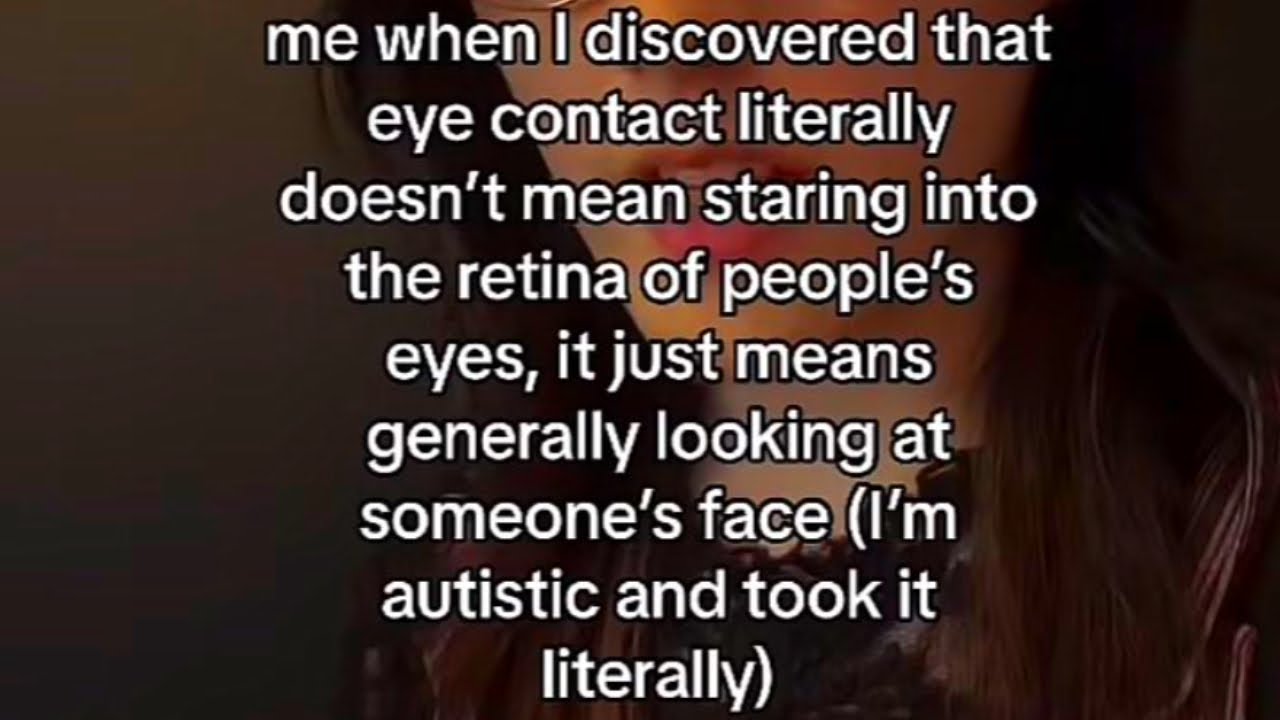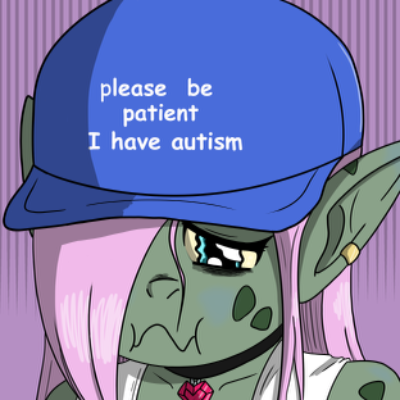I’m not here making some value statement about the importance of eye contact or whatever, for the record. do what u want, lots of people don’t like direct eye contact, it could well be enought to look generally at people’s faces most of the time, and it’s a pretty intricate social tool, I’d argue. I’m not qualified to give complicated eye contact takes
Thoughts?
Eye contact is wayyyy too intimate to me. I only do it with people I’m really comfortable with, which is almost exclusively someone I am dating. While I hate eye contact in general, I love it during sex. Without it, I feel like half of the sex is missing. Am I weird? Am I the only one that is like that?
I’m not like that but that doesn’t make you weird.
I find even a little brief eye contact between periods of looking elsewhere can be a good tool.
Neurotypicals try to properly explain what you were doing by instinct.
Jokes aside, I like the idea that Joel is trying to get to: the most tolerant society would be one that just accepts without a second thought that some people simply have a different form of innate non-verbal language.
For people who actually need some explanation about eye contact: most human brains are wired to interpret information about other people’s intentions from their facial expressions (including many autistics), so by looking at other people in the eye, your brain attempts to work the “puzzle” out, and also becomes aware that the person looking at you is trying to read you. If you’re insecure, that will make you feel vulnerable. If you’re unused to making eye contact, your brain will get tired fast because it keeps trying to process information without knowing how.
The truth is that it’s a generally unreliable communication tool except for very clear cases, and its main utility is triggering other people’s pattern-seeking to make them see you as just another normal human, since very atypical non-verbal language makes them place you at the uncanny valley. If this seems like a lot of work to you, it actually is, which is why many autistic people choose not to mask.
If you need a step-by-step instruction on how to do that to mask properly, it’d just be best if you sought non-scripted Youtube videos where strangers talk to each other on the street (for instance, interviews). You will notice how “eye contact” isn’t actually too constant, but rather gets broken and resumed all the time, especially by the person talking.
I do feel eye contact is eye to eye so looking into their eyes and seeing they’re doing the same but it can be challenging for some
Sounds about right. It will be sufficient to just look into people’s faces generally, or perhaps de-focused. I think it really depends upon how closely related we are to the person. Friends will more likely have direct eye contact, i think. It is also sufficient to look into people’s faces for short moments, when speaking to them directly. I trained this when i was younger, until it came naturally, but i’m sometimes still falling back into no-eyes mode. :)
The deep, longer lasting, look in the eyes is indeed reserved for romance, so don’t overdo or it might be misunderstood!
Eye contact kinda hurts (not physically but dunno how to describe) it’s like if everyone had laser vision
as if they’re looking into your very soul
you’re the only embarrassment here and you can’t even see it :)
@can i’ll let everyone else explain why you’re wrong for me. i’m going to go get groceries.
Ha! Thanks for the laugh. I appreciate the creativity.
To me it’s like looking at the sun. You can for a little while but everything is screaming that this is bad for you and to stop.
Dude what is wrong with you Redditors?
u le mad?
>u le mad
You le speak english?
All the time.
That sounds rough. I’m sorry you’re having such a tough time. Hope things will improve for you soon.
I can handle eye contact.
Pray to God.
I can handle it too. But this shit is a spectrum you know? Have a little empathy.
@can @Owl @Boomerman @graf You’re definitely on a spectrum, you retarded faggot.
It’s hilarious how worked up you guys get about this.
LE WHICH GOD DO YOU LE PRAY TO the God mocker quips, ever so Joss Whedonly, after giving a speech about empathy.
You brought religion into this. I’m not mocking religious people I’m mocking you
I love looking the dead hookers into their eye when i make love to them
@HumpleupagusRemoved by mod













